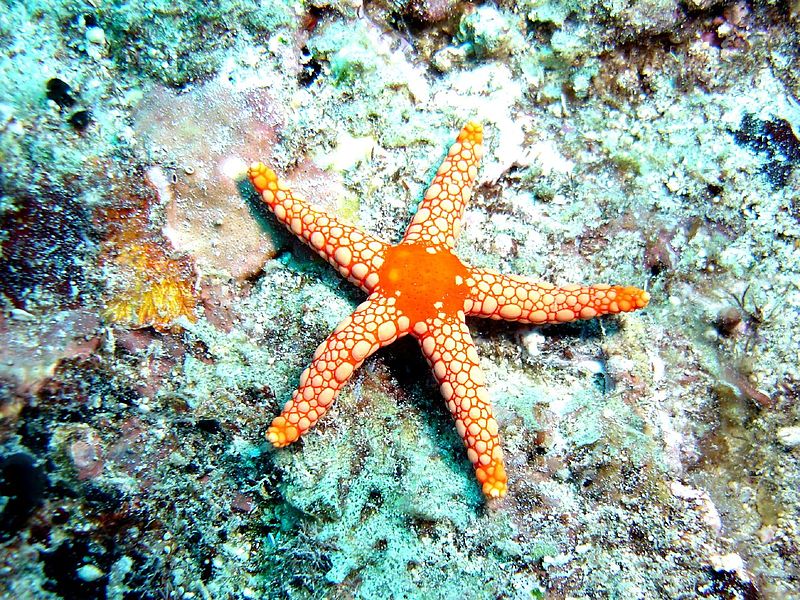
Category: Invertebrates

Also known as starfish, these echinoderms are found on the sea floors of all the world’s oceans from the equatorial tropics to frigid polar zones. There are around 1500 species of sea stars, some being able to survive at abyssal depths of 20,000 feet below the surface of the ocean. They usually have a central disc with five arms, though some exceptions have more. Their tube feet, which help them move, maneuver food, breathe, and also attach themselves firmly to rocks and other underwater structures, are operated by their “water vascular system,” a hydraulic system of interconnected fluid-filled canals. Their digestive system or “gut” occupies most of their central disc and also extend into their arms.
https://en.wikipedia.org/wiki/Starfish

Cephalopods: Masterminds of the Ocean.
Octopi, cuttlefish, and squids - all cephalopods - have been observed engaging in amazing feats of intelligence (perhaps unsurprising, as cuttlefish and octopuses have the highest brain-to-body mass of all invertebrates). Their suction-cup covered arms are dexterous, and octopuses have been observed putting them to use throwing rocks, opening screw-top jars, even picking up and gathering coconut shells to build fortresses for themselves. Squids, for their part, have been observed hunting cooperatively and are able to communicate with one another via color changes, patterns, and flashing to one another - sometimes using different sides of their bodies to broadcast different signals to multiple squids! Just how smart are they? As they are typically elusive and so very different from humans, we aren’t sure yet - but we do know the question is not “Are they intelligent?” but “How intelligent are they?”
Learn more >>
 Discover Animals is a web-based educational resource offered by the NAIA
Discover Animals is a web-based educational resource offered by the NAIA